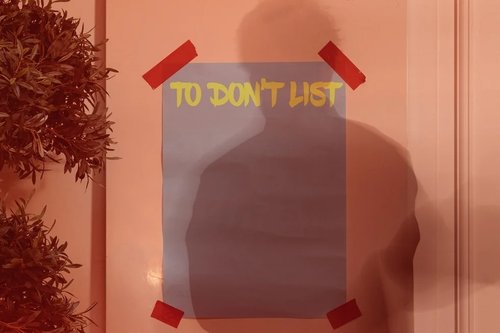Invisible disabilities and the job hunt: Should you bring it up?
Oct 09, 2023
8 mins


Sydney Pereira is a writer and journalist based in New York City,
For Hope Tocci, getting diagnosed and properly treated for her invisible illness was a decade-long journey. She was misdiagnosed at 13 years old for a disease that she later found out was a rare degenerative joint disease of the temporomandibular joint (TMJ) that causes extreme jaw and neck pain. “By the time I was in college, it just became totally unmanageable,” says Tocci, a Reno-based human resources recruiting professional. The diagnosis left her with irreversible damage and significant weight loss. “I knew something was wrong with my body.”
But getting that diagnosis was the start of another journey of understanding her rights in the workplace as someone with an invisible disability. Tocci learned she was entitled to request reasonable accommodations through the Americans with Disabilities Act (ADA). She received a doctor’s note and was able to request to work remotely and negotiate for a 32-hour work week. This helps her limit driving and use ice packs in her workspace to manage pain. “It’s been so much better on my health,” she says.
Disclosing health conditions to a potential employer
Disclosing a health condition to an employer or prospective employer can be nerve-wracking—especially if you’re newly diagnosed. “At first, when you get diagnosed with something, it’s very discouraging,” Tocci says. “You’re overwhelmed, anxious, thinking about, ‘How am I going to work the rest of my life?’”
Researchers have found 90% of people with disabilities do not feel a sense of belonging at work. “The fear of discrimination, of being treated poorly at work, or of something changing at work because you asked for accommodations and people know you have a disability is very real,” says Wendy Strobel Gower, the director of the Northeast ADA Center and Thomas P. Golden, Executive Director at Cornell University’s K. Lisa Yang and Hock E. Tan Institute on Employment and Disability.
Understanding your rights in the workplace can be empowering, ultimately creating a pathway to finding a job where you have the resources you need to thrive. Whether you’ve recently been diagnosed with an invisible disability or have just recently decided to seek accommodations, here is a guide to help you get started on your own journey.
First, what is an “invisible” disability?
An invisible disability is an impairment that is not apparent or immediately obvious to others. This could be a physical, mental, or emotional condition.
The Invisible Disability Project defines invisible disability as an impairment that “goes largely unnoticed.” The disability could be referred to as “invisible,” “non-visible,” “hidden,” “non-apparent,” or “unseen.” These could include autism, ADHD, PTSD, and depression. Others include chronic illnesses such as multiple sclerosis, fibromyalgia, and long Covid. They could also include hearing or vision impairments, as well as a brain injury. Whether or not a disability is apparent can change depending on the situation.
The Invisible Disabilities Association adds: “These are not always obvious to the onlooker, but can sometimes or always limit daily activities, range from mild challenges to severe limitations, and vary from person to person.”
What are my legal protections?
The Americans with Disabilities Act is a federal law that protects people with disabilities from discrimination. Specifically, Title I of the ADA requires employers with at least 15 employees to provide equal opportunity for people with disabilities when it comes to recruitment, hiring, promotions, training, pay, and social activities. This law is enforced by the U.S. Equal Employment Opportunity Commission (EEOC).
According to the commission, employers are prohibited from asking you questions during the job interview process that could reveal you have a disability before offering you a job. That could be a question like, “Do you have a heart condition?” or “How many days were you sick last year?”
There are a few exceptions to this rule, including if an applicant requests an accommodation during the application process and the employer needs more information, if the applicant has an apparent disability leading to the reasonable belief that it could affect their job performance, or for affirmative action purposes, according to the Job Accommodation Network (JAN).
The employer can ask such questions or require a medical exam after they’ve offered you a job—but they cannot withdraw the job offer unless they can show you wouldn’t be able to do the “essential functions’’ of the job with or without reasonable accommodations or if you’d pose a risk of harm. Additionally, specific medical questions or exams must be provided to all new hires in the same job category.
If you are requesting accommodations, you may be required to provide documentation of your disability, such as a doctor’s note. Additional employment laws will vary from state to state, so be sure to check out labor laws in your state as well. These are often an additional layer of protection.
When should I disclose?
Legally, you can disclose a disability whenever you want throughout the employment process—during recruiting, the interview process, upon hiring, or months into being on the job. Or, you can choose not to disclose it at all.
“When it comes to work, people with disabilities are under no legal obligation to disclose themselves as having a disability when applying for a job, during any part of the hiring process, or during employment,” says Erica Marie Molina, the director of the Client Assistance Program and Protection & Advocacy for Beneficiaries of Social Security program at Disability Rights New York.
Molina adds that if you need accommodations, consider the benefits of disclosing. “Self-disclosure allows a person to engage clearly with their employer or hiring manager, and it can give that person access to the reasonable accommodations process,” she says. JAN writes that you should disclose when you realize there’s an accommodation you need to go through the application process or to do your job effectively, or when you discover a workplace barrier that could be removed with an accommodation.
Tocci says that she has found it’s generally common courtesy to avoid applying for jobs you know you wouldn’t be able to do even with accommodations. But as for the timing of disclosure, Tocci has always shared this information after she’s gotten the job—with varying reactions from employers.
At one company, her employer reduced her salary as a result of her accommodation for a 32-hour work week; this was likely illegal since the employer did not give advance notice to Tocci. “My coworkers were getting paid more, and I had the same, if not more, workload than them as well. I felt really discriminated against. I just saw it in my paycheck, and I was like, ‘What’s going on?’ They weren’t as understanding and flexible as some other employers, so I ended up leaving,” she says.
Though ableism and discrimination still occur, disability inclusion and accessibility efforts are increasingly prioritized by employers. At Tocci’s current human resources job, she requested accommodations during the first week of the job. Tocci’s supervisor was “extremely understanding, very flexible, didn’t make me feel less than, and was very transparent about everything.”
Do I disclose during an interview?
If and when you disclose is a personal decision and you’ll want to consider several factors, which are further detailed through the Job Accommodation Network and its videos. This could include whether you need accommodation during the job application process, requiring you to disclose sooner. Or, perhaps exploring whether specifying a diagnosis itself is necessary. You may want to consider whether your invisible disability is a fundamental aspect of who you are that is important for you to be able to share in the workplace without fear of discrimination or bias. Molina says, “Self-disclosure allows a person to engage clearly with their employer or hiring manager, and it can give that person access to the reasonable accommodations process.”
JAN shares one example in which a job applicant shares with a mentor that she has anxiety and depression that resulted in a resume gap. She’s wondering whether to disclose her mental health condition during a job interview. In the module, the individual ultimately decided to explain the gap by sharing she was dealing with a personal situation related to a health condition. She also asked about her expected office area and whether a few basic strategies would be embraced in the workplace to help her work more effectively.
Though the job applicant in the video felt conflicted about not fully revealing an element of who she is, the portrayed scenario did allow her to successfully assess the prospective workplace conditions and employer’s flexibility.
What if I want to disclose before a job offer?
If you need accommodation as a part of the application process, the EEOC recommends you inform the hiring manager or recruiter as soon as possible orally or in writing and be prompt to respond to any follow-up questions. How an employer handles the early stages of the application process could be an indicator of whether or not the workplace is inclusive.
“If you want to disclose during the interview, we usually would recommend to people that you check out the website and see if they talk about disability inclusion,” says Gower. If they have a screen reader on their website or other indications of an accessible and inclusive workplace, then, she says, “it’s a good indication that the environment is going to welcome that kind of disclosure.”
During an interview, Gower says you can focus on what your disability/ies brings to the table. “I encourage them to focus on the gift that disability brings,” she says. “If you have a disability that impacts your energy levels, you are going to be one of the most efficient people because you know you have limited spoons—limited energy—in which to conquer the work that you have to conquer every day,” she says. Consider the questions: ‘How have you navigated challenges?’ ‘How do you adapt to an often inaccessible world around you?’
“[When] you’re navigating in a world that doesn’t work for you, you often become very creative,” Gower says.
What else should I consider?
Some invisible disabilities are difficult to receive a diagnosis for, creating barriers to accessing what you need. For instance, autism in girls and women is underdiagnosed. “It’s difficult for people without a lot of financial resources to get diagnosed as autistic, and getting that diagnosis as an adult is nearly impossible,” says Gower.
Or, another example: long Covid. “Some of these more amorphous or emerging disabilities are much more difficult to get that documentation,” she says. For instance, it took Gower three years to receive diagnoses for fibromyalgia and an autoimmune condition.
Some people struggle to ask for what they need, wondering if their disability is significant enough to warrant it. This, Gower says, leads to “trepidation around asking—not only because of the potential reaction of your employer and your colleagues but also because of that internal struggle of, ‘Is this really me? Am I a person with a disability?’”
The bottom line: It’s personal
Whatever you choose to do, it’s a personal decision for which you should consider all the complexities of your situation—your disability, potential accommodations, your employer and its DEI efforts, and more.
A 2011 survey from Cornell University researchers found the top reasons for choosing not to disclose a disability included being fired or not hired, concerns regarding an employer focusing on disability, risk of losing healthcare, and fear of limited opportunities. Among those with non-apparent disabilities, about 10% reported immediate negative experiences and 27% experienced longer-term negative consequences. One literature review published in the Journal of Vocational Rehabilitation notes other disadvantages as being placed in a “dead-end job” or being treated differently.
But there are also advantages. Disclosing could allow you to receive accommodations that allow you to do your job more effectively, reduce stress resulting from concealing a part of yourself, and increase your confidence as a result of self-advocacy, the literature review noted. The Cornell survey found some wanted to disclose their disability as a way to evaluate employer reactions and whether the company would embrace employees with disabilities. Molina says, “I encourage folks with disabilities to be as brave as they can be when they seek support in the workplace, and I encourage them to learn as much as they can about their own rights and their employer’s reasonable accommodation process and policy.”
Tocci’s accommodations have helped her manage her illness while also flourishing in her career. “Now, I’m still successful in my career and want others to see that they can be successful regardless of their health. You’ve just got to be creative,” she says.
Photo: Welcome to the Jungle
Follow Welcome to the Jungle on Facebook, LinkedIn, and Instagram, and subscribe to our newsletter to get our latest articles every week!

More inspiration: Applying for jobs

Should you job hunt over the holidays? Tips to beat the new year rush
Searching for a new job to start fresh in 2025? The holiday season might be the right time for you to start the process.
Dec 09, 2024

Introverts & extroverts: Strategies to ace your interview
Job interviews can be tough, whether you're a social butterfly or a quieter introvert. The key to standing out is being yourself.
Aug 20, 2024

Should you be scared of the ghost job trend?
Have you ever been ignored after applying for a job? You may be a victim of the ghost job trend.
Jun 12, 2024

Lost in translation: Decoding bizarre job descriptions
“Candidates with no sense of humor need not apply.” Um …
Jan 25, 2024

Nailing your job search: Writing a to-don’t list for success
Don’t want this, don’t want that … Writing down things you want to avoid in a new job could be your job-hunting key.
Jan 18, 2024
The newsletter that does the job
Want to keep up with the latest articles? Twice a week you can receive stories, jobs, and tips in your inbox.

Looking for your next job?
Over 200,000 people have found a job with Welcome to the Jungle.
Explore jobs